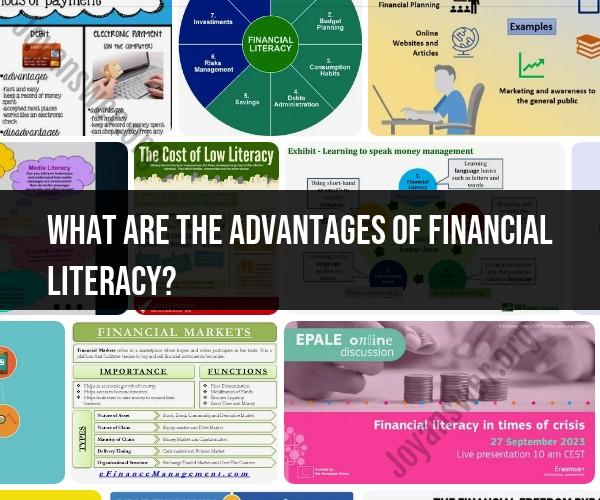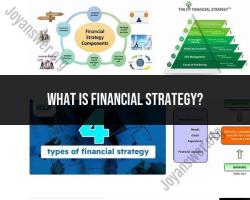What are the advantages of financial literacy?
Financial literacy offers numerous advantages that empower individuals to achieve financial freedom and make informed decisions about their money. Here are some key advantages of financial literacy:
Smart Financial Decision-Making: Financially literate individuals are better equipped to make smart decisions about budgeting, saving, investing, and spending. They can assess financial options and choose those that align with their goals and values.
Debt Management: Financial literacy helps individuals understand concepts like interest rates, credit scores, and debt repayment strategies. This knowledge enables them to manage debt effectively and avoid falling into excessive debt traps.
Wealth Building: Financially literate individuals are more likely to engage in wealth-building activities such as investing, asset accumulation, and retirement planning. They understand the power of compound interest and can take advantage of investment opportunities.
Emergency Preparedness: Financial literacy encourages individuals to create emergency funds or savings buffers, which provide financial security in the event of unexpected expenses or job loss.
Retirement Planning: Financial literacy promotes effective retirement planning. Individuals can calculate how much they need to save for retirement, choose appropriate retirement accounts, and make informed decisions about when to retire.
Reducing Financial Stress: Financial stress is a significant issue for many people. Financial literacy helps individuals manage their finances with confidence, reducing stress and anxiety related to money matters.
Protection Against Scams: Financial literacy includes the ability to recognize and avoid financial scams and fraudulent schemes, protecting individuals from financial fraud and exploitation.
Economic Mobility: Financially literate individuals have a better chance of achieving upward economic mobility. They can increase their earning potential, invest wisely, and build a stronger financial foundation.
Improved Financial Well-Being: Financial literacy contributes to overall financial well-being. It allows individuals to achieve financial goals, live within their means, and enjoy greater peace of mind about their financial future.
Better Money Management: Financial literacy promotes better money management skills, including budgeting, tracking expenses, and setting financial priorities. These skills are essential for achieving long-term financial success.
Enhanced Economic Stability: On a broader scale, a financially literate population can contribute to economic stability by reducing reliance on social safety nets and government assistance programs.
Empowerment: Financial literacy empowers individuals to take control of their financial lives. It gives them the confidence to make informed financial decisions and take advantage of opportunities that can lead to financial independence.
Legacy Planning: Financial literacy can include estate planning and wealth transfer strategies. It allows individuals to plan for the financial security of their heirs and leave a meaningful legacy.
In summary, financial literacy offers a wide range of advantages that extend beyond personal finances. It enhances individuals' financial well-being, reduces financial stress, and contributes to economic stability. Efforts to improve financial literacy through education and awareness can lead to greater financial empowerment and freedom for individuals and communities alike.













